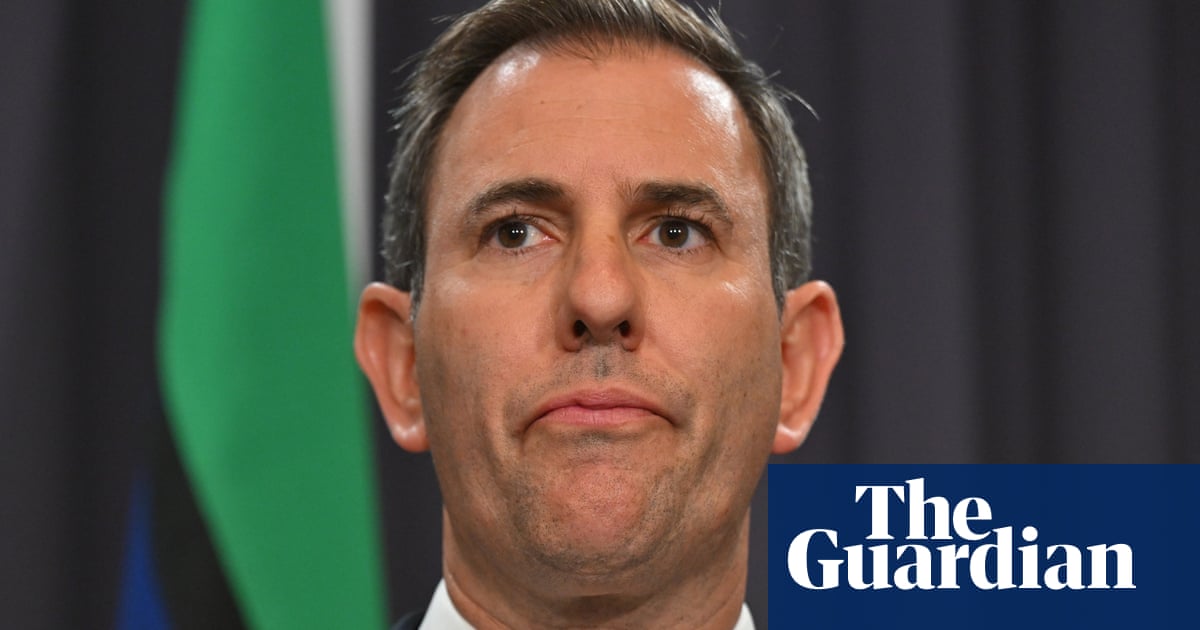Australia’s economy will not be immune from escalating trade tensions, Jim Chalmers has warned, as the Albanese government prepares itself for an incoming Donald Trump administration.
In a speech to be delivered on Monday , the treasurer will outline the risks of an “uncertain world characterised by economic vulnerability and volatility” but will say the Australian government is “well-placed and well-prepared”.
There is speculation Trump’s second term in the White House may drive up inflation in the US again if he moves ahead with plans to raise tariffs on imported goods and slash taxes.
“Of course we expect the incoming US administration to bring a different suite of policies. And we are confident in our ability to navigate that change, as partners,” he will say at the Australian Institute of International Affairs.
Modelling undertaken by the Treasury department on different trade and tariff policy scenarios indicated there would be a “small” reduction in Australia’s output and additional price pressures in the short term.
But Chalmers believes the country’s flexible exchange rate and independent central bank will mitigate the impacts. On the global stage, however, the impact is “much more substantial”.
“The timing of this, and the responses and ramifications that might follow – what economists call second-round effects – are difficult to predict,” the treasurer will say.
“But we wouldn’t be immune from escalating trade tensions that might ensue.”
The warning signs have already been ventilated by the Treasury department’s secretary, Steven Kennedy, who told Senate estimates last week about the “flow-on consequences” for Australia if the US placed heavy tariffs on Chinese goods.
The US president-elect has flagged his intention to place baseline tariffs of 10% on all imported goods, with up to 60% and 100% for China and Mexico respectively.
Kennedy said the introduction of the proposed tariffs could lead to lower growth and higher inflation.
“Implications for Australia are more about growth because of the implications for China and their demand for our goods,” he said.
The Reserve Bank governor, Michele Bullock, stayed mum on the question of how a Trump presidency might impact inflation in Australia.
“At this stage we would be sticking to our inflation outlook,” she told senators.
after newsletter promotion
In the speech, Chalmers also praises former prime minister, Kevin Rudd, who is Australian ambassador to the US, for doing an “excellent job” at building and deepening connections “across the political aisle”.
Before being appointed ambassador, Rudd had been critical of Trump, describing him as “the most destructive president in history”. In an interview in March, Trump called Rudd “nasty” and said he “won’t be there long” as ambassador.
On Thursday, Rudd’s private office account confirmed “past commentaries” about Trump had been removed from his personal website and social media channels “out of respect” for the office of president of the United States and following his election.
Chalmers will reference Rudd’s work in Washington DC including introductions to key figures in both vice-president Kamala Harris and Trump’s teams.
In particular, Rudd introduced Chalmers to Scott Bessent – a top fundraiser for Trump and a potential US treasury secretary pick – in the White House.
“Getting more than an hour with a key member of President Trump’s economic team 12 days before the election was a very valuable opportunity,” Chalmers will say.
“We spoke about monetary policy, inflation, and tariffs and trade.”







